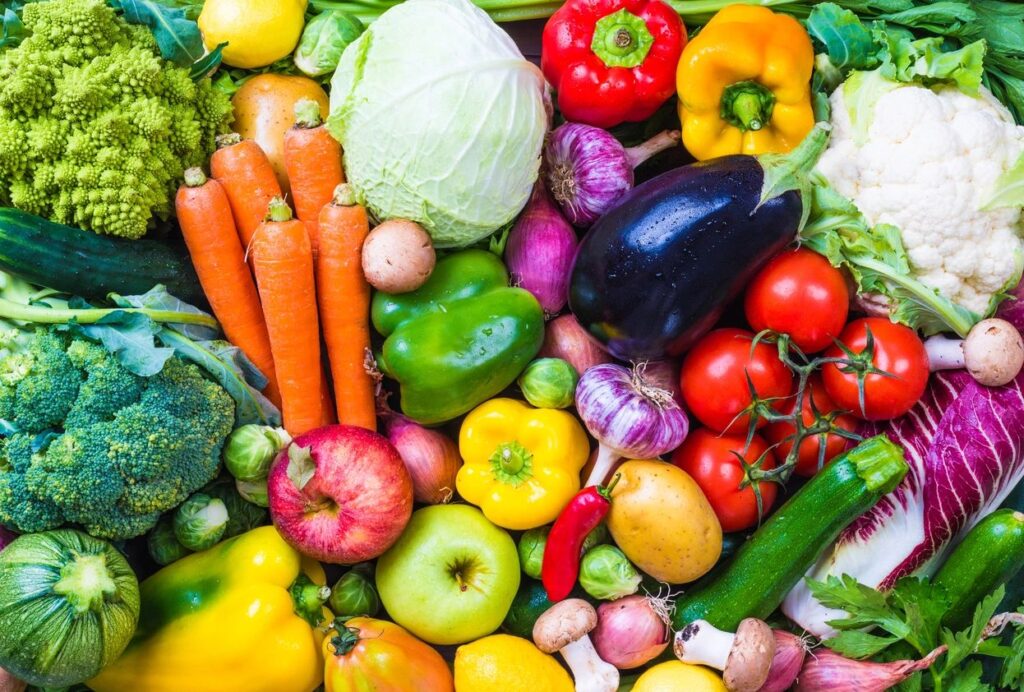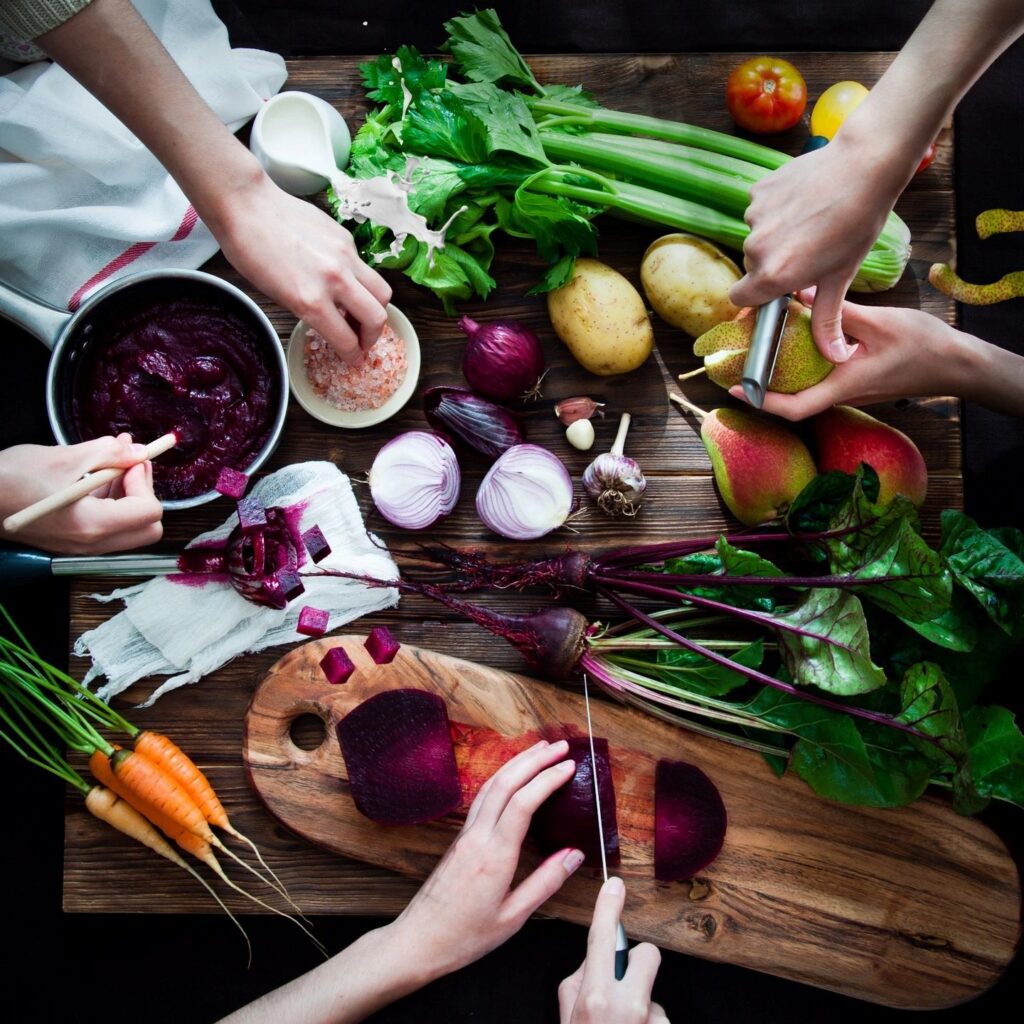The Truth About Collagen

Here’s the thing, I have nothing against collagen IF it is a supplement you tolerate. I took it for a long time, too, before learning I had a genetic sensitivity to it (I had wondered this, but hadn’t confirmed it yet).
But, there’s one thing about collagen that most people may not know.
We actually make it ourselves.
We just need to eat enough vitamin C.
And where do we find vitamin C? Fruits and vegetables.
What are many people not eating enough of? Fruits and vegetables.
In fact, according to a CDC analysis in 2015, only 9% of adults ate the recommended amount of vegetables, and 12% ate the recommended amount of fruits (1).
What’s more, the recommended amount isn’t even a whole lot: 2 to 3 cups of vegetables (including starchy vegetables), and 1.5 to 2 cups of fruit (1). I get it, this might actually sound like a lot to some people, but a few tweaks to the diet and we can easily incorporate these amounts (provided we have the resources to access them, which is a barrier for some).

So, essentially, if we eat enough fruits and vegetables, we will get enough vitamin C, which is a precursor nutrient to making enough collagen.
Additionally, many of the benefits we seek from collagen (healthier hair, skin, nails, gut, joints) can also be helped by eating enough enough fruits and vegetables.
Not only does the the vitamin C in produce help the body make collagen, but the fiber from produce also feeds the healthy bacteria in our gut. This produces something called short chain fatty acids (SCFAs), which help heal the gut lining and keep it intact. SCFAs also help lower inflammation, which may help ameliorate joint pain.
Biotin is another nutrient we get from a variety of foods. These foods include animal products, but they also include a number of plant foods. Biotin is an important nutrient for healthy and strong hair, skin, and nails. Do you see where I’m going with this?

Essentially, if we are eating a well-balanced diet with a variety of whole foods, including plenty of fruits, vegetables, and other plant foods, we will likely be getting the nutrients we need to achieve the same benefits we seek from collagen.
Again, nothing against collagen, but, like any other supplement, it needs to be an addition to an already healthy diet, not a replacement (unless necessary for medical reasons).
So, just be sure if you’re taking collagen to achieve some of the potential benefits, you’re also consuming enough fruits and vegetables as well.




Leave a Reply